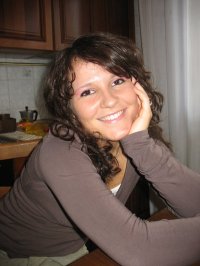The APA style is most used to cite sources within the social sciences. It gives you suggestions about footnotes, references and in-text citations. It gives you guidelines about the general layout and the structure of the text, that is, what the text should look like and the sections that it should have. Ok, I already knew these rules. The thing that strucked me the most was reading all the rules about the in-text citations. It's true that I already knew the majority of these rules, such as capitalizing proper nouns including initials, capitalizing all words that are four letters long and italicizing the titles of longer works. It's also true that I didn't know that shorter titles shouldn't be italicized and that the first word after a dash or colon should be capitalized. About the short and long quotations, I already knew that the long ones should be in a free-standing block in typewritten lines, omitting quotation marks. I knew that writing the page number in the in-text references is suggested, too. So, ok, I was quite prepared!
The MLA style focuses on the way in which references should be written. The MLA style requires that you provide brief parenthetical references directly in the text identifying the exact part of each work that is quoted or on which the ideas of your work are based. I didn't know this rule, in my BA thesis I just put the general references in the footnotes. The MLA style requires that you provide an alphabetical list of "Works Cited" at the end of the paper, too. The general format required by this style is the same I used in my BA thesis. About the material found online, I have to admit that in my BA thesis I didn't put too much attention in citing the websites in which I found the information I used. I just put a section called "Sitography" at the end of my paper, without specifying the information I found in each of them. One thing I liked about the MLA style is that it suggests you write "Works Consulted", "Works Cited" or "Annotated Works Cited" instead of "Bibliography" 'coz they're more specific. A thing that I didn't like about the MLA style is that it suggests you underline instead of using italics in writing the titles of the works you use. I personally think that using italics is more elegant than underlining, but maybe it's because using italics is part of the Italian way of writing. So, this time I was not so prepared...
To sum up, I can say that I was aware of the majority of the rules I read, but of course I didn't know all of them and the ones I knew were not so fixed in my mind. If I re-read my BA thesis, anyway, I can say it's not that bad regarding quotations. It lacks regarding the abstract and the "sitography", but I'm gonna follow the new rules I learnt in the next dissertation. Well, following all these rules is not easy at all, it seems a BIG effort to me, but I guess that complaining isn't going to change the situation... ; )



